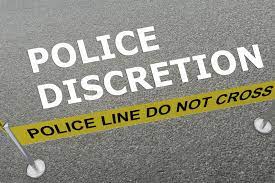Discretion in Decision Making in Criminal Justice
May 01, 2023
This paper describes how discretion is used in criminal justice decision making. Discretion can be defined as the power to choose or decide what course of action should be taken in a given situation. In criminal justice, discretion is often used by police officers, prosecutors, judges and other officials when making decisions about whether to investigate a crime, which charges to bring against a suspect, and ultimately about sentencing for those who have been convicted.
Discretion in the criminal justice system can play an important role in promoting fairness and individualized justice. By allowing experienced professionals to consider relevant factors on a case-by-case basis, it provides space for them to take into account mitigating circumstances not specifically outlined in the law. This can help ensure that punishments fit the specific nature of each crime, as well as the individual's personal circumstances.

At the same time, discretion is also controversial because it can lead to disparities in justice for members of different groups. This arises when decisions made on a case-by-case basis are influenced by factors such as race, gender or socioeconomic status rather than solely based on facts and legal considerations. For example, research has shown that black defendants are more likely to be charged with felonies and receive longer sentences than white defendants with similar backgrounds and charges. Such disparities in criminal justice outcomes demonstrate the need for continued attention to ensure that discretion is used responsibly and appropriately.
To address this issue, some states have implemented reforms designed to reduce racial bias in sentencing decisions by limiting prosecutors' discretion in charging decisions and judges' discretion in imposing sentences. Other states have adopted sentencing guidelines that provide more guidance to judges on the appropriate sentence for each crime, so as to reduce disparities in punishments. These reforms, however, can also lead to overly harsh sentences by limiting judges' ability to exercise their own judgment about how best to address a particular case.
Overall, it is important for both practitioners and policymakers to be aware of how discretion operates within the criminal justice system. Discretion should not be used as a tool for discriminatory practices, but rather as a way of ensuring individualized justice based upon evidence and established legal principles.
